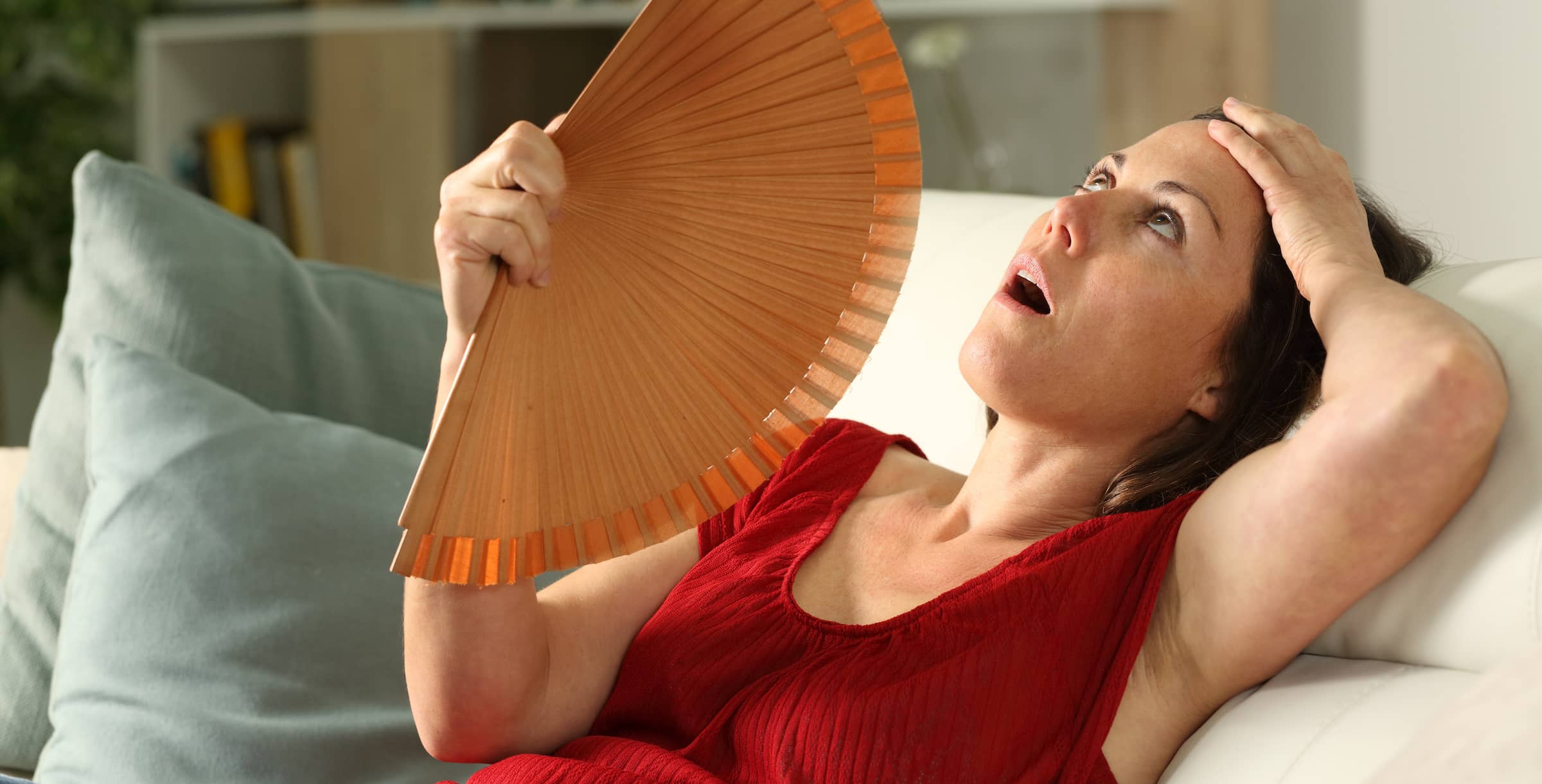The time leading up to the point when a woman completely stops having periods is known as perimenopause and during this time women may experience a multitude of symptoms both physical and psychological.
Menopause, or ‘the climacteric’ and the perimenopause is a transition that all women will go through at some point in their lives. The average age of a woman going through menopause in the UK is 51 years, although it can occur from 40 -58 years of age.
Every month your ovaries release an egg, which produces the reproductive hormones oestrogen and progesterone. In perimenopause the number of eggs released becomes fewer, the falling hormone levels themselves have dramatic effects on many systems in your body and they also contribute to a cascade reaction of a hormone from higher centres in the brain that is thought to cause some of the most troubling symptoms.
Here, Dr Ruchira Karunadasa and women’s wellness specialist, Nikki Hillis both from Sun Chlorella, share their advice on perimenopause.
What are Perimenopause symptoms/signs?
There are many subtle and unique ways that the perimenopausal period presents in individuals. Dr Ruchira Karunadasa shares the most common ones:
Hot flushes – Hot flushes affect 85% of women, can be as often as every half an hour and might be accompanied by chills, fluttering of the heartbeat and profuse sweating, particularly at night.
For the majority of women, the flushes gradually get better and are gone within 4-5 years. A quarter of women may have symptoms for more than 5 years.
Vaginal Dryness -Lack of oestrogen causes vaginal dryness that can cause generalised discomfort and make intercourse painful.
Skin and hair changes – Natural oils in the skin reduce that can lead to changes in the quality and appearance of the skin, nails and hair.
Urgency – It can cause the muscle in the wall of your bladder to become less stretchy, which can cause a constant urge to pass urine that can be uncomfortable.
How does this affect people’s daily quality of life and wellbeing
The severity and duration of these symptoms can affect women to varying degrees. Even if an individual only suffers from hot flushes, this can lead to poor sleep which in turn leads to progressive fatigue and knock-on effects to concentration, irritability, brain fog and ultimately anxiety and depression. Hence their wellbeing and quality of life can be varyingly but significantly affected.
Tips on managing perimenopause, shared by Nikki Hillis, women’s wellness specialist at Sun Chlorella:
Manage Stress- Try activities like Qigong, yoga, walking in nature, meditation, exercise, laughter and spend time with people you love.
Keep healthy life patterns – Use essential oils such as lavender, chamomile and frankincense, reading or writing in a journal, taking magnesium supplements, using Epsom salts in a warm bath prior to bed, limit screen time and keep the temperature in your room cool.
Use Essential oils – Clary sage oil is the most effective essential oil for balancing hormones. It can help offer relief from menopause symptoms including increased anxiety and hot flashes.
Roman chamomile oil reduces stress, peppermint oil can help cool the body from hot flashes, and thyme oil can help naturally balance hormones.
Supplement with herbs – Dong quai – combined with chamomile is meant to enhance the effectiveness of reducing hot flushes. Sage has been studied to help with night sweats.
Apoptogenic herbs like Eleuthero (Siberian ginseng), helps you adapt to stress physically and emotionally. Ginseng has been used to increase energy and libido. Some research suggests it can help relieve hot flashes, fatigue, sleep problems, anxiety, depression, cognitive impairments, and vaginal dryness.
Eat plenty of organic fruits and veggies – Probiotic-rich foods are key for healthy digestion such as sauerkraut and kefir. Clean and lean proteins like fish or grass-fed meat, and healthy fats such as olive and coconut oil. Cruciferous vegetables, like broccoli, cabbage and kale, contain indole-3-carbinol, which naturally helps to balance oestrogen levels.
Take Sun Chlorella – Chlorella balances PH- our bodies can become more acidic with hormone imbalances and cause issues with bone density. One study showed Sun Chlorella reduced body weight and increased bone density in menopausal women.
It is a great multivitamin from a food source and contains all the essential bone nutrients. It is anti-inflammatory and a good source of fibre to help flush out excess hormones and support gut health. Chlorella is also a prebiotic and beneficial bacterium is involved in the detoxification of oestrogens.
“The perimenopausal phase mirrors the autumnal phase in nature or the premenstrual phase of the monthly cycle when your energy wanes as you prepare to shed your uterine lining.
The stage represents a time of inward focus and ultimately of letting go of what is no longer serving you, just as the tree sheds its leaves in autumn.
The first half of our life is very externally led, and the second half is more internal, there’s a deepening from within.” – Nikki Hillis, women’s wellness specialist at Sun Chlorella.





